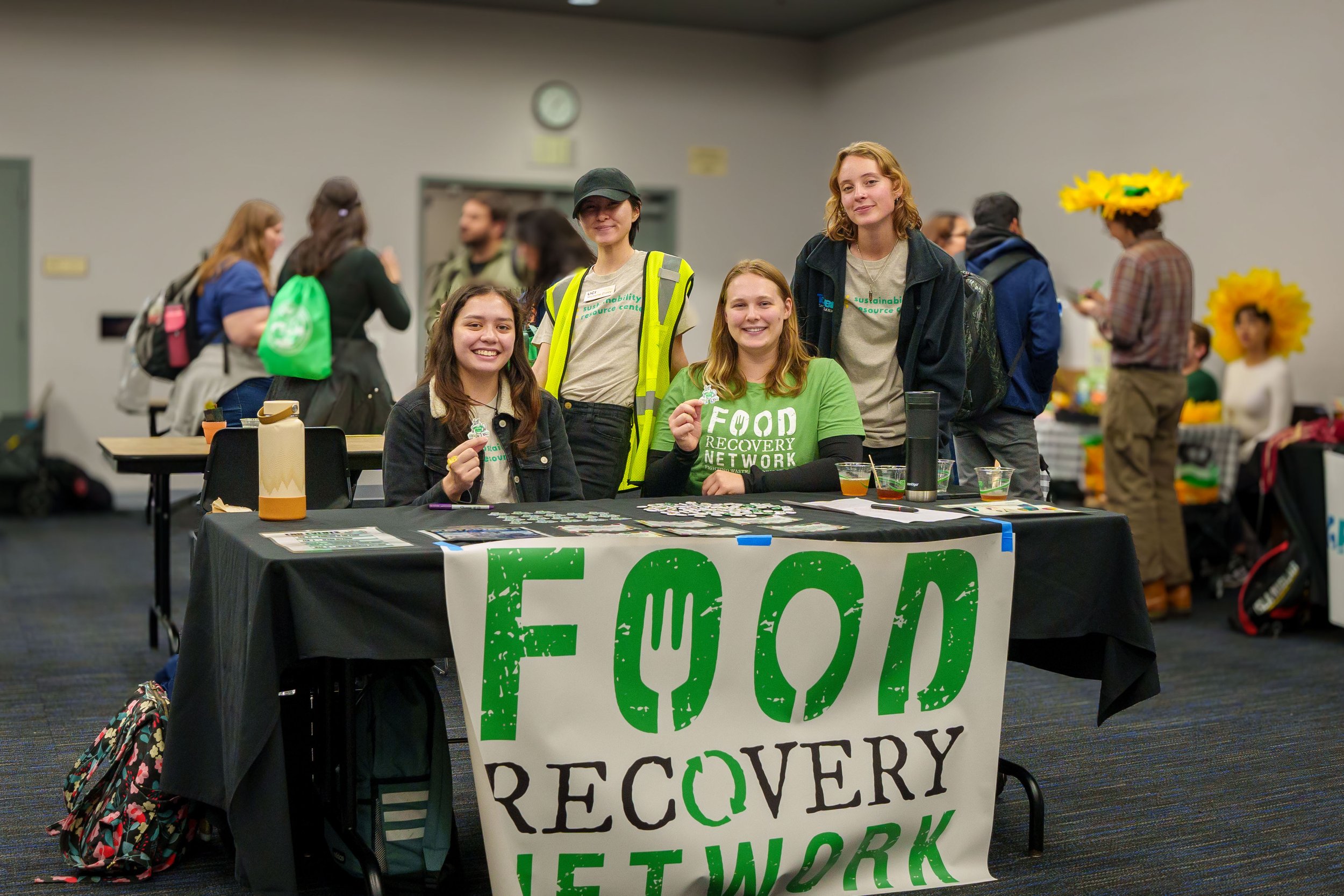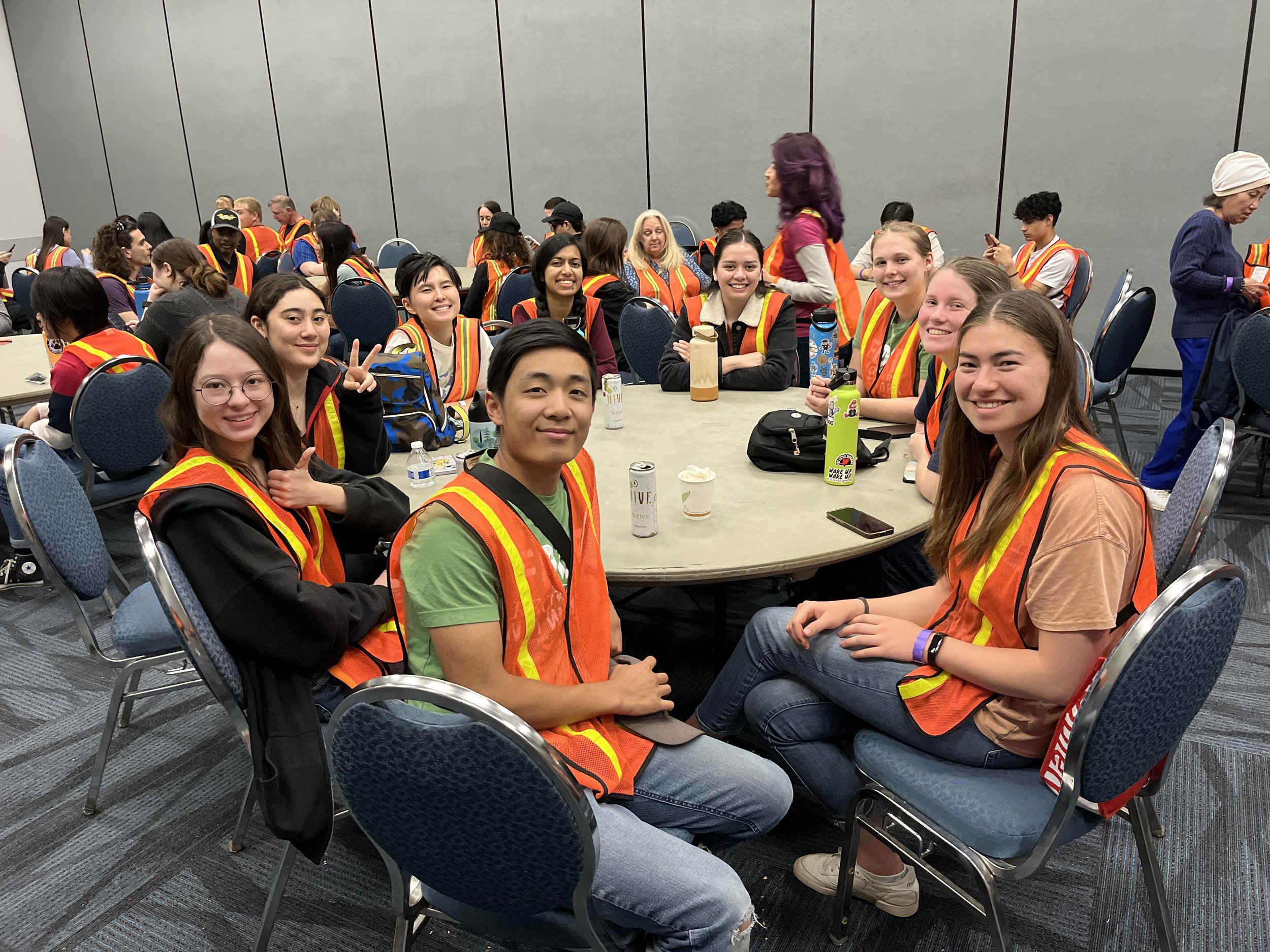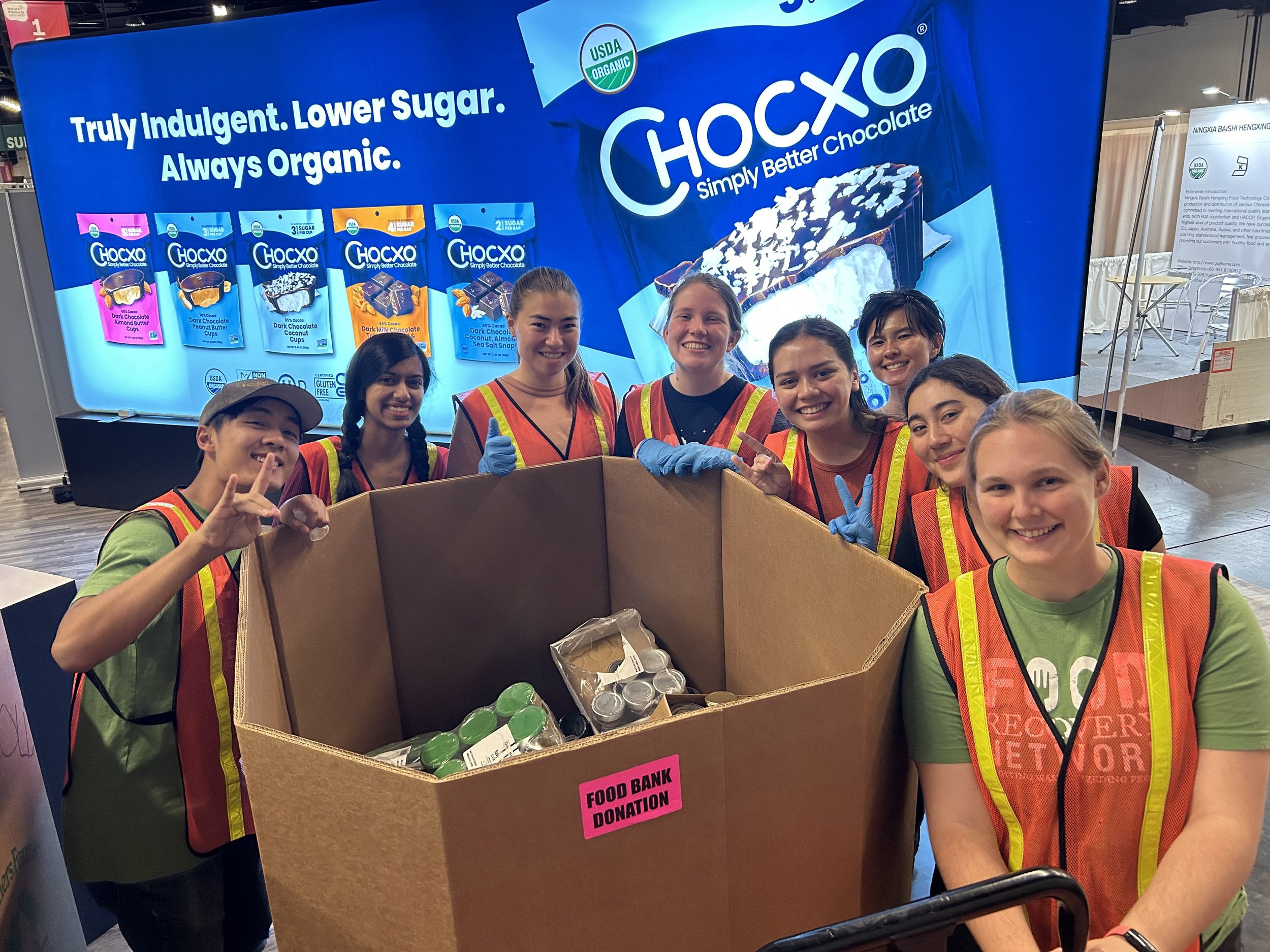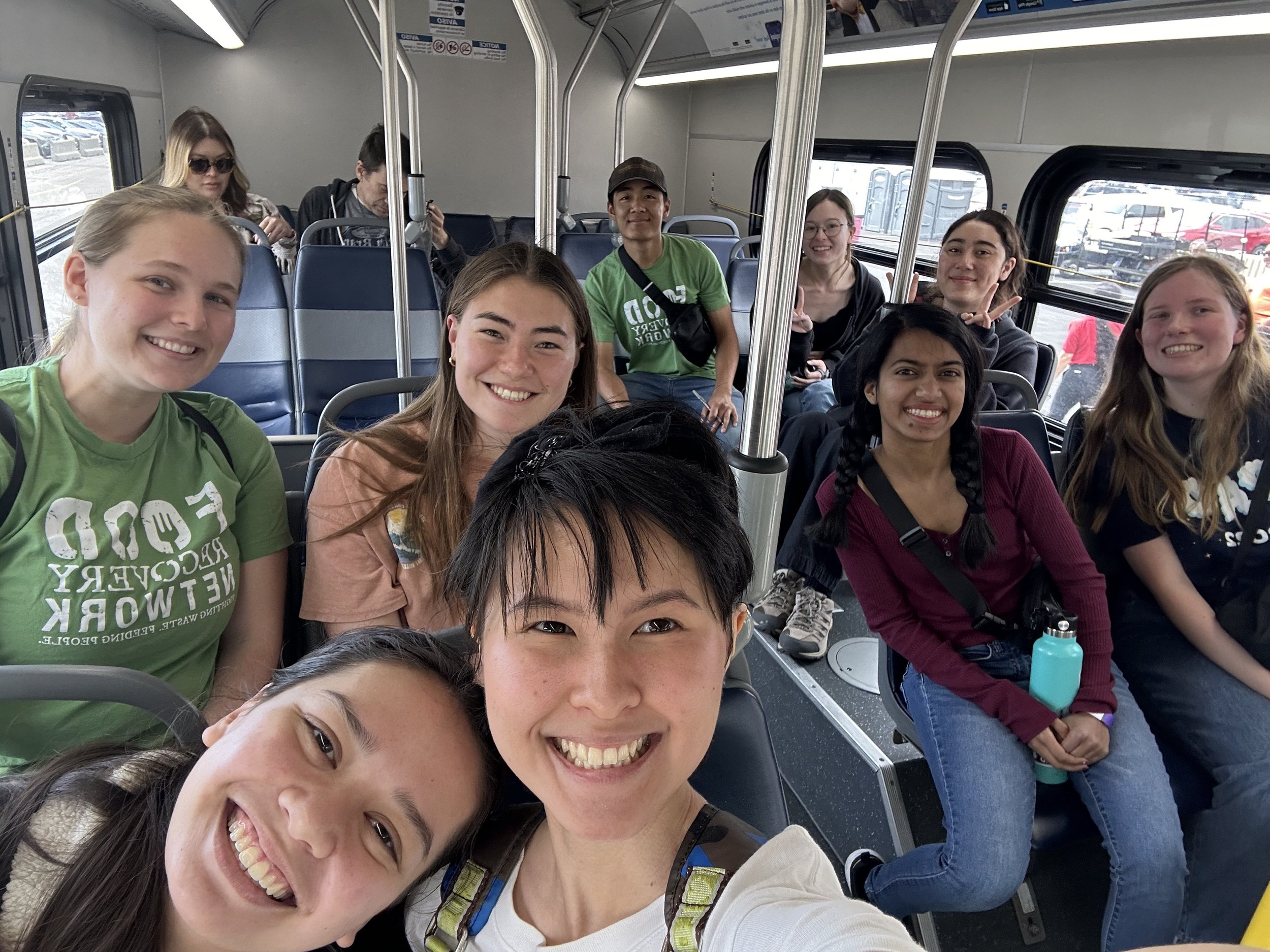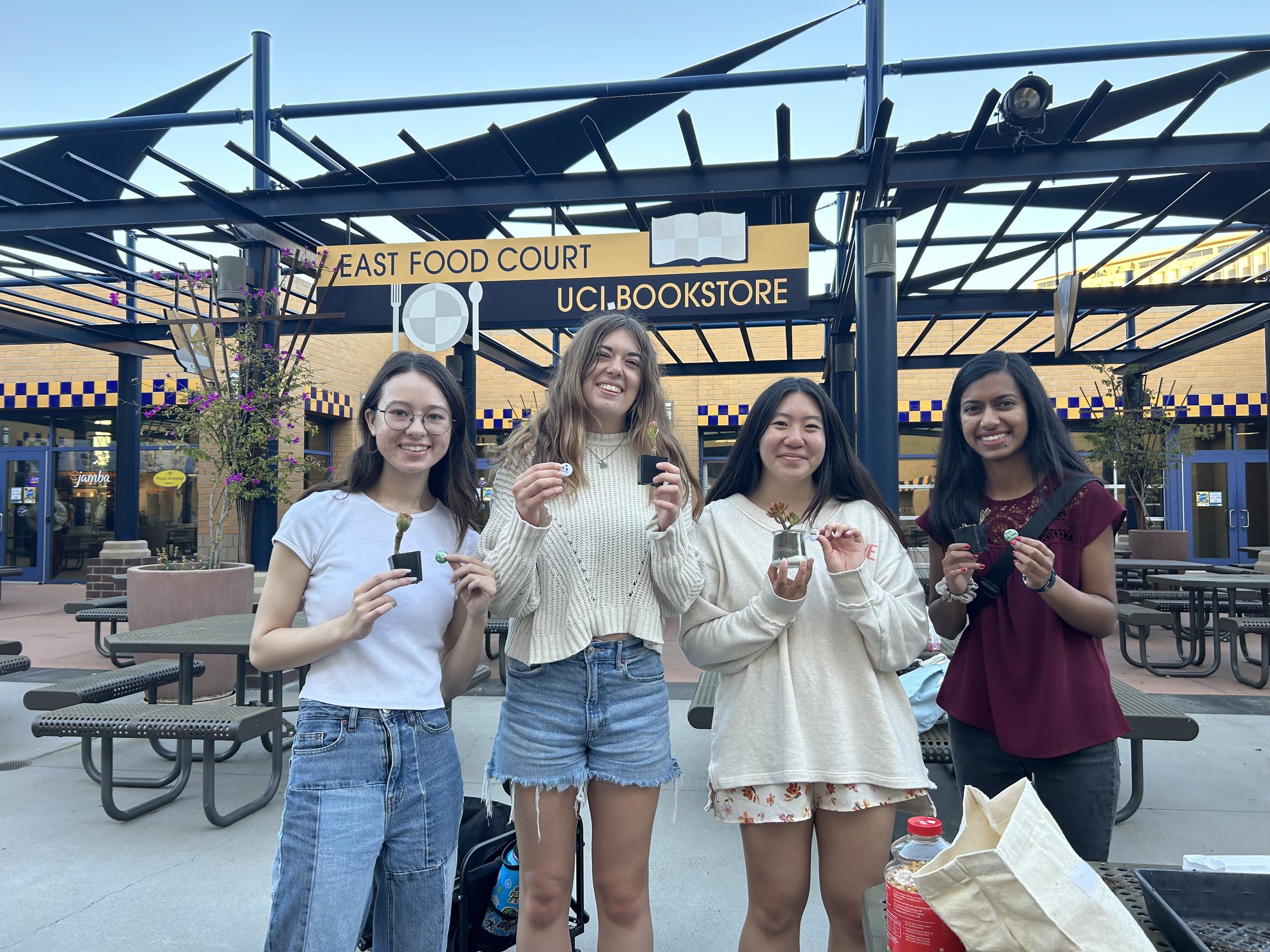bowl to bracket bingo
This year’s Bingo Challenge for Official Chapters is now closed!
Kicking off after the Super Bowl and ending during March Madness, FRN is hosting our third Bowl to Bracket Bingo Challenge to promote food recovery and help fund our student-led chapters. Complete challenges from the Bowl to Bracket bingo card below and earn prize money allocated to each activity for your chapter. Get bingo and win an additional $5.
Any questions? Email our team at programs@foodrecoverynetwork.org to learn more!
rules to play
The challenge begins after the Super Bowl (2/10/2025) and runs through the end of March (3/31/2025). Any activities completed before or after this time period will not count toward earning money for your chapter, besides the bonus square.
Must be currently affiliated with an official FRN Chapter to participate and money earned is to be used for Food Recovery Network-sanctioned activities and events.
To gain credit for each challenge, you must document and send FRN National proof of completion. The top right corner of each square has a symbol that indicates what you need to send FRN National to get credit for completing the challenge (upload photos or videos, tag us on social media posts, fill out your food tracking form, email FRN National).
The Challenge ends 3/31/25 at 11:59pm EST, proof of completion of all challenges must be submitted by that date and time.
The maximum amount of money that can be earned by one chapter is $575.
A bingo is described as across the row, down the column, or a diagonal.
Each chapter can only earn the money for each square one time.
Money earned through Bowl to Bracket Bingo will be added to the chapter's individual funding no later than 4/19/25. To check your chapter’s funding balance find your chapter under Current Chapters and select the pounds-to-date spreadsheet to view the funding tab.
By participating in the challenge in any way you grant Food Recovery Network license to repost, publicly display, reproduce entries, in whole or in part, in any media or use now existing of later developed, for any purpose. This giveaway is not sponsored, endorsed, administered by or associated with Instagram, Facebook, NFL, or NCAA.
The chapter that recovers the most food this spring semester will earn an EXTRA $500 of funding for their efforts.
Be sure to fill out your Food Tracking Forms! Recoveries from 01/01/2025-06/30/2025 will count towards this challenge.
Winner is Saint Louis University! They completed 20+ recoveries, amounting to 30,000 lbs of surplus food saved from landfills.
2025 bingo highlights
FRN at Binghamton University
Reasons why Binghamton University Recovers Food:
Making a meaningful impact for those experiencing food insecurity on our campus. We create frozen meals and donate them to our campus Food Pantry.
Providing for our community. We process "bulk" items (usually consisting of rice, veggies, proteins) and donate to Good Neighbors, an organization which picks the items up from campus and distributes to those in need.
Limit organic matter that would otherwise end up in landfills. Our goal is to ensure that recoverable food in all dining facilities is donated rather than wasted. When food cannot be recovered, we advocate for food to be processed as animal feed.
To demystify the process of diverting food waste. Our volunteers learn just how widespread food waste is as the default in collegiate dining settings. We show that diversion is possible with the help of our dedicated volunteers!
FRN at Northern Arizona University
FRN’s chapter at Northern Arizona University worked hard this Bowl to Bracket season. Chapter leader Cory Tompkins spoke on food insecurity and food systems during an on-campus conference, "Cultivating Resilience in Arizona's Food Systems" (left). They also utilized reusable pans to reduce single-use aluminum pan waste (middle) and tabled on campus to gather new volunteers (right)!
“Northern Arizona University is a relatively large university with more than 9,000 students living on campus that use campus dining halls on a daily or near daily basis. The kitchens will often overestimate the amount of food they prepare which causes extra food to be thrown away. We believe recovering this food is important because we are not only curbing food waste in the best way we can, but we can then donate that food to those who need it. Flagstaff community members experience a high rate of food insecurity so being a part of a movement to reduce food waste and feed local people is an incredible movement to be a part of.”
2024 bingo highlights
FRN at University of California, Irvine
University of California, Irvine’s students did great work this Bowl to Bracket season: Tabling for FRN, attending a conference and recovering through a food drive, and hosting events for their volunteers!
“I recover food because I want to make a meaningful difference in my community. Redistributing food that otherwise would have been wasted helps people in need and strengthens my community. ”
FRN at University at Pittsburgh
Hear the President of University at Pittsburgh, Gal Yoval’s advice and perspective on how to run a successful food recovery program!
“I recover food because during my first year in college I saw how much food was being wasted in the dining halls and coffee shops around campus. I found out that Pitt had a chapter of FRN and immediately joined as I wanted to reduce that waste. [...] Seeing the amount of wasted food makes me realize that there is no reason why anyone should be hungry, and I recover food to help those who are food insecure, while also helping the environment and reducing the environmental impact of my school.”
2023 bingo highlights
FRN at Loyola University Chicago
Loyola's FRN chapter partners with the Student Environmental Alliance for the global climate strike on March 3rd. Students advocated for mass re-construction of the food system in order to eliminate food waste among other environmental efforts.
“We recover food for the planet and its people. Each one of our E-board and general body members is personally devoted to the mission of fixing America’s food system and making sure no one goes hungry. We are grateful for the opportunity to contribute to these endeavors through FRN and are excited to keep fighting for change. We want to see a better future with less food waste and less hungry people, and we believe we’ll get there.”
FRN at case western reserve university
FRN student leaders cooking tacos (left) and packaging sandwiches (right) with their non-profit partner St. Matthew's United Methodist
“We want to fight hunger and serve the greater Cleveland community since our campus is merely 3 minutes away from the region of food deserts. We want to not only educate people about the amount of food waste that occurs on campus, but also the lack of regulation and misconceptions with food waste and expiration dates. ”















